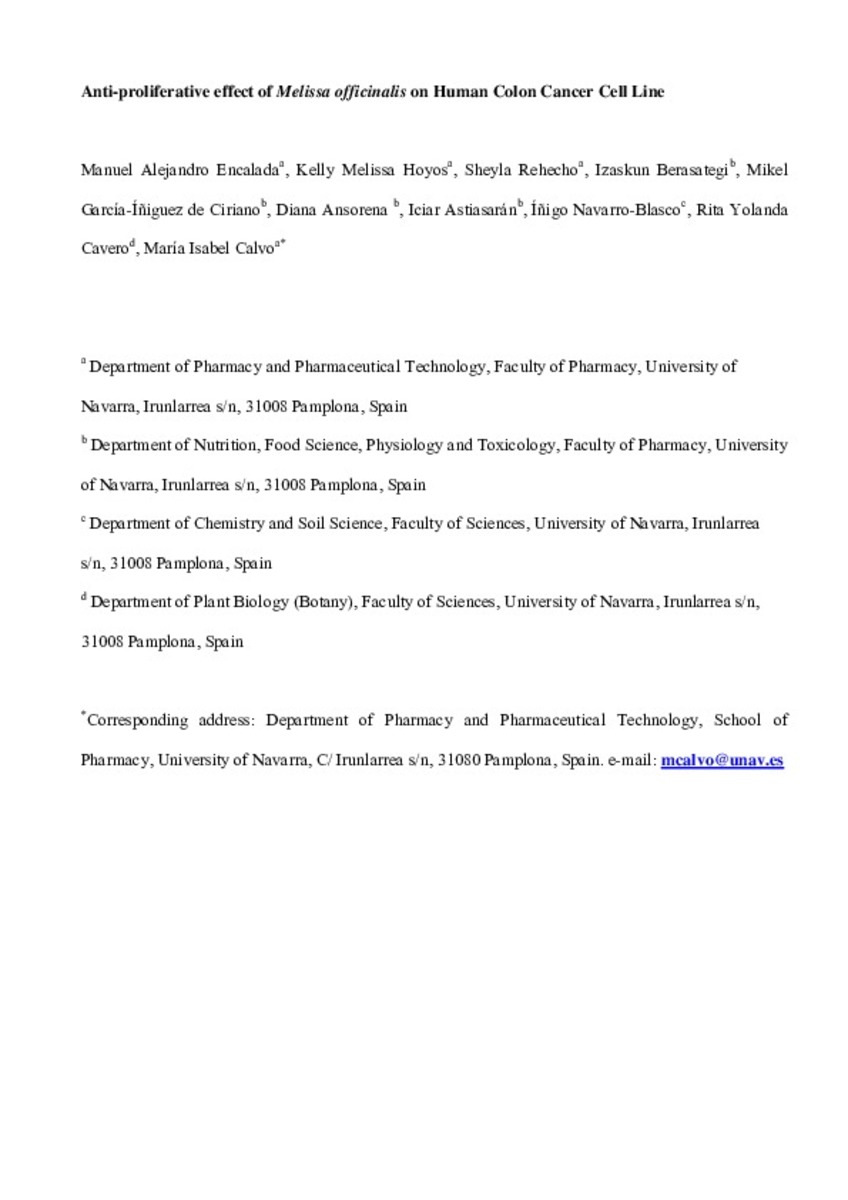Anti-proliferative effect of melissa officinalis on human colon cancer cell line
Palabras clave :
Lemon balm
Lamiaceae
Antioxidant
Cytotoxicity
HCT-116
Fecha de publicación :
2011
Cita:
Encalada MA, Hoyos KM, Rehecho S, Berasategi I, de Ciriano MG, Ansorena D, et al. Anti-proliferative effect of melissa officinalis on human colon cancer cell line. Plant Foods Hum Nutr. 2011 Nov;66(4):328-334
Aparece en las colecciones:
Estadísticas e impacto
0 citas en

0 citas en

Los ítems de Dadun están protegidos por copyright, con todos los derechos reservados, a menos que se indique lo contrario.











